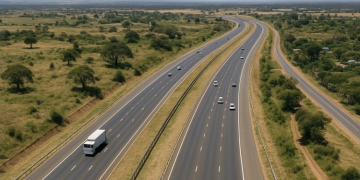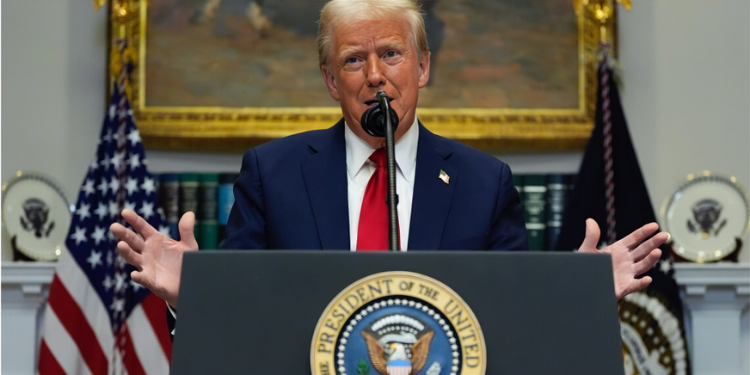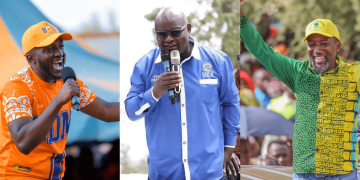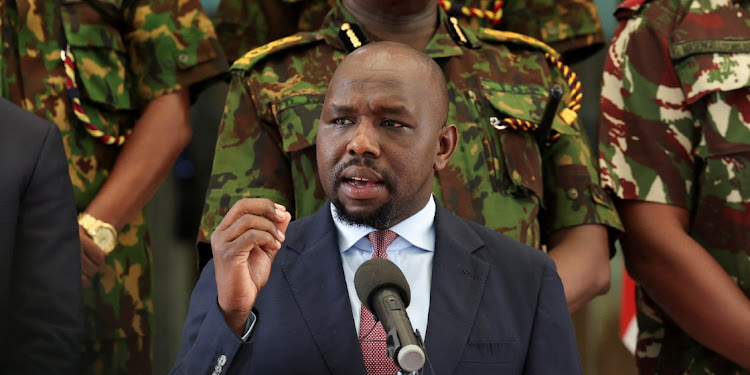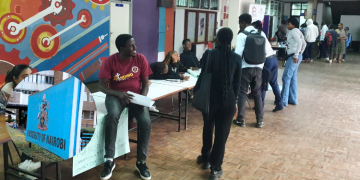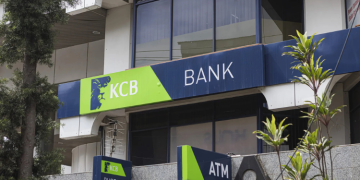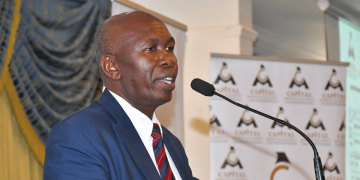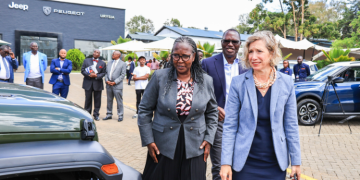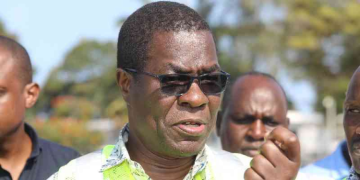President William Ruto has responded to a ruling by the High Court of Kenya that barred the Inspector General of Police, Douglas Kanja, from setting up roadblocks within Nairobi’s Central Business District (CBD) during public protests.
The order came following an urgent petition filed by the Katiba Institute, which accused the police of abusing their powers by barricading roads and restricting peaceful demonstrators from accessing the city centre.
The court ruled that such actions amounted to an unlawful limitation of constitutional rights, particularly Articles 37 and 39, which guarantee freedom of assembly and movement.
In response, President Ruto has launched a scathing attack against the judge who issued the conservatory orders.
Ruto defends use of roadblocks, teargas and water cannons
The Head of State maintained that police roadblocks and the use of teargas or water cannons are meant to protect the lives and properties of Kenyans.
“Today, I saw a court ruling stating that the Inspector General of Police should not erect roadblocks or use teargas and water cannons to protect the lives and property of Kenyans. Yet, the person issuing this ruling has police officers guarding their home and even driving them around. How can anyone say that the police should not protect the lives and property of ordinary Kenyans?” he questioned.
“There is a reason we have roadblocks, teargas, and water cannons — they are tools meant to keep people safe and protect property when there is danger. It is ironic that someone who enjoys personal police security can suggest that the broader public should not receive the same level of protection from law enforcement.”
The court had directed the National Police Service to refrain from cancelling, disrupting or interfering in any way with the right to assemble, protest, or picket while peaceful and unarmed.
It also ordered the immediate removal of barricades and police blocks from the city center unless they served to protect specific sensitive areas under a limited perimeter.
Katiba Institute in the petition pointed to recent protests where demonstrators were met with heavy police presence, barbed wire, and metal barricades across key entry points into the CBD.
The institute further argued that despite legal notice being given to police, officers had failed to provide public notifications of road closures as required by law.
Also Read: Ruto Admits Government Can’t Immediately Solve Unemployment Crisis
President Ruto made the remarks hours after he directed police officers to shoot anyone caught looting businesses and vandalizing property during protests in the leg.
During the commissioning of a police housing project in Nairobi’s Kilimani area, the President told officers not to kill but “shoot and break the legs” of any violent protester.
“Shoot them in the leg”
He further warned unnamed political leaders he accused of inciting the youth into violence.
“Anyone who burns down someone else’s business and property, let them be shot in the leg and go to the hospital as they head to court. Yes, let them not kill, but shoot and break the legs. Destroying people’s property is not right,” he said.
“It is leaders financing youth to carry out those acts, and we are coming after you!”
Also Read: Ruto Orders Police to Shoot Kenyans in the Leg
According to Ruto, attacks on police officers and premises like police stations will be treated as terrorism.
“Those who attack our police, security installations, including police stations, are declaring war. It is terrorism, and we are going to deal with you firmly. We cannot have a nation run by terror and governed by violence; it will not happen under my watch,” Ruto added.
Protests across Kenya have increased in recent months over growing public discontent against the Kenya Kwanza administration over the rising cost of living and a spate of crackdowns on government critics.
Most of the protests have resulted in deaths, injuries, and abductions, with critics condemning police for brutality and the use of live ammunition on unarmed protesters during the youth-led demonstrations.
At the same time, there have been concerns over the deployment of armed youth groups, ‘goons’, to attack protesters and loot businesses.
The Kenya National Commission on Human Rights (KNCHR) said it recorded 31 deaths and 107 injuries from the most recent demos on Monday in which vandalism cases targeting business premises were also recorded in several towns across at least 15 counties.
Follow our WhatsApp Channel and X Account for real-time news updates.



